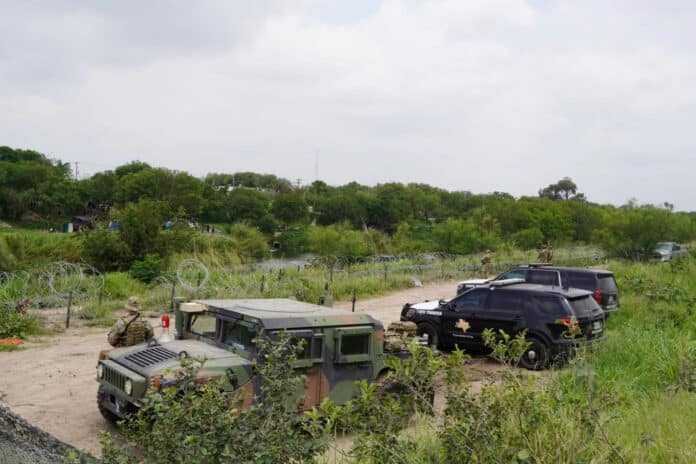
(The Center Square) — A divided U.S. Supreme Court sided with President Joe Biden’s administration on Monday, clearing the way for federal authorities to remove razor wire installed in Eagle Pass along the U.S.-Mexico border by Texas law enforcement.
The Supreme Court ruled 5-4 to vacate an appeals court ruling that allowed the wire to stay in place as the case played out. Chief Justice John Roberts led the majority with Justices Sonia Sotomayor, Elena Kagan, Amy Coney Barrett and Ketanji Brown Jackson.
Justices Clarence Thomas, Samuel Alito, Neil Gorsuch and Brett Kavanaugh were in the minority, according to decision.
Texas National Guard soldiers are setting up more razor wire here in Eagle Pass to repel illegal crossings.
Yesterday, the Supreme Court allowed the Biden administration to remove this wire but Texas is still blocking Border Patrol from processing migrants in this area. pic.twitter.com/edptUKNobz
— Camilo Montoya-Galvez (@camiloreports) January 23, 2024
The Biden administration had appealed to the U.S. Supreme Court to intervene in one of its border lawsuits with Texas. Texas filed suit against the Biden administration after Border Patrol agents destroyed concertina wire barriers erected on Texas soil by officials working through Gov. Greg Abbott’s border security mission, Operation Lone Star.
Last month, the Fifth Circuit handed Texas a win, issuing an administrative stay preventing the federal government from cutting, removing or destroying the wire, with few exceptions.
Texas installed the razor wire in an area near Eagle Pass, Texas, a prime hotspot for illegal border crossings.
U.S. Solicitor General Elizabeth Prelogar, representing the federal government, asked the justices to intervene. She said the Fifth Circuit ruling has “serious on-the-ground consequences” because it prevents Border Patrol agents from apprehending people after they cross the Rio Grande River to illegally enter Texas. She said the Fifth Circuit’s ruling was “manifestly wrong” because it “prohibits Border Patrol agents from cutting or moving Texas’s wire barriers that physically block agents from accessing the international border and reaching migrants who have already entered U.S. territory.”
















